CEO
EC assigns 10 officials to receive election-related information, complaints
The Election Commission (EC) has assigned 10 officials to receive information and complaints regarding the upcoming national election and the referendum.
Salahuddin Ahmed, Deputy Director of the EC Secretariat (Mobile: 01712591144, Email: [email protected]) has been assigned for Khulna region, said a press release on Tuesday.
Faridpur region will be overseen by Mohammad Nurul Hasan Bhuiyan, Deputy Director of the Election Training Institute (Mobile: 01711369976, Email: [email protected]).
In Mymensingh, Senior Assistant Secretary Mohammad Murad Uddin Hawladar will serve as the designated official (Mobile: 01712044188, Email: [email protected]).
Assistant Secretary Mohammad Al-Mamun (Mobile: 01937638035, Email: [email protected]) has been appointed for Barishal region while Misbah Uddin Ahmed, Assistant Director of the EC Secretariat, (Mobile: 01717244078, Email: [email protected]) for Sylhet region.
Assistant Director Zakir Mahmud will handle complaints (Mobile: 01718564635, Email: [email protected]) for Dhaka region, Assistant Secretary Syed Golam Rashed (Mobile: 01818268082, Email: [email protected]) for Rangpur, and Assistant Director Muhammad Sarwar Hossain (Mobile: 01717405594, Email: [email protected]) for Chattogram.
Rajshahi’s responsible officer is Assistant Secretary Md. Momtaz-al-Shibli (Mobile: 01676324609, Email: [email protected]), and in Comilla, Assistant Director Md. Ikramul Hasan (Mobile: 01797185123, Email: [email protected]) has been assigned.
Besides, election-related information and complaints can also be sent via two EC email addresses: [email protected] and [email protected].
The EC on December 14, 2025, formed election investigation and judicial committees for 300 parliamentary constituencies consisting of judiciary officers.
Complaints related to specific constituencies can also be submitted to these committees.
1 month ago
Explainer: What may have caused OpenAI board to fire Sam Altman
In a surprising move, OpenAI, the artificial intelligence research lab, ousted its CEO, Sam Altman, raising eyebrows and leaving shareholders in the dark.
While concerns about the rapid advancement of AI technology may have played a role in Altman's termination, the handling of the situation has drawn criticism from various quarters, reports CNN.
The decision to remove Altman, credited with steering OpenAI from obscurity to a $90 billion valuation, was made abruptly, catching even major stakeholders like Microsoft off guard.
Human drama at OpenAI: Board reportedly ‘in discussion’ with Sam Altman to return as CEO
The CNN report suggests that Microsoft, OpenAI's most important shareholder, was unaware of Altman's dismissal until just before the public announcement, causing a significant drop in Microsoft's stock value.
OpenAI employees, including co-founder and former president Greg Brockman, were also blindsided, leading to Brockman's subsequent resignation. The sudden departure of key figures prompted rumors of Altman and former employees planning to launch a competing startup, posing a threat to OpenAI's years of hard work and achievements, said the report.
The situation worsened due to the peculiar structure of OpenAI's board. The company, a nonprofit, harbors a for-profit entity, OpenAI LP, established by Altman, Brockman, and Chief Scientist Ilya Sutskever. The for-profit arm's rapid innovation to achieve a $90 billion valuation clashed with the nonprofit's majority-controlled board, resulting in Altman's dismissal, it also said.
The tipping point appears to be Altman's announcement at a recent developer conference, signaling OpenAI's intention to provide tools for creating personalised versions of ChatGPT. This move, seen as too risky by the board, may have triggered Altman's removal.
ChatGPT-maker OpenAI fires CEO Sam Altman
Altman's warnings about the potential dangers of AI and the need for regulatory limits indicate a clash between innovation and safety within OpenAI. The board's concerns about Altman's pace of development, while perhaps justified, were mishandled, leading to a crisis that could have been avoided.
The aftermath sees OpenAI scrambling to reverse the decision, attempting to entice Altman back. The incident has strained relations with Microsoft, which now demands a seat on the board. OpenAI's future hangs in the balance, with possibilities ranging from Altman's return to a potential competition with a new startup, the report also said.
In the end, OpenAI finds itself in a precarious position, facing potential internal upheaval and external challenges, highlighting the importance of strategic decision-making in the rapidly evolving field of artificial intelligence.
Microsoft hires OpenAI founder Sam Altman to lead AI research team
2 years ago
Human drama at OpenAI: Board reportedly ‘in discussion’ with Sam Altman to return as CEO
The OpenAI board is reportedly "in discussion" with Sam Altman regarding his potential return as Chief Executive Officer (CEO) after he was suddenly fired on Friday (November 17, 2023), according to The Verge.
Quoting sources close to the matter, The Verge reported that Altman is “ambivalent” about coming back and would want significant governance changes.
Also read: ChatGPT-maker OpenAI fires CEO Sam Altman
Earlier, many staffers of OpenAI, the US-based AI research and deployment company that developed ChatGPT, gave an ultimatum to the OpenAI board to resign and bring back Sam Altman and Greg Brockman, chairman of OpenAI who resigned in protest of firing Altman.
As per The Verge, the board has initially reached an agreement to resign, making way for Altman and Brockman to return. However, there seems to have been a change in their stance since then.
A source close to Altman told Verge that if he decides to start a new company, those staffers will go with him, which could lead OpenAI towards a state of free-fall.
Also read: ChatGPT-4: All you need to know
Following Altman’s termination as CEO, a string of senior researchers of the organisation have resigned from their posts at OpenAI.
Meanwhile, in a memo sent to OpenAI staffers, one executive member of the company has reportedly said "we remain optimistic" about bringing back Sam Altman, The Verge reports, quoting The Information. The Verge, however, couldn't confirm whom the executive was referring to with the term "we."
2 years ago
Probably not going to work out for Amazon employees who defy return-to-office policy, CEO says
Amazon employees have been pushing back against the company’s return-to-office policy for months — and it seems CEO Andy Jassy has had enough.
During a pre-recorded internal Q&A session earlier this month, Jassy told employees it was “past the time to disagree and commit” with the policy, which requires corporate employees to be in the office three days a week.
The phrase “disagree and commit” is one of Amazon’s leadership principles, and was used often by the company’s founder and current executive chairman, Jeff Bezos.
Brazil's Amazon Summit ends with a plan to protect the world's rainforests, but no measurable goals
“If you can’t disagree and commit, it’s probably not going work out for you at Amazon,” Jassy said, adding it wasn’t right for some employees to be in the office three days a week while others refuse to do so.
His comments were first reported by Business Insider, and later shared by Amazon.
The current office attendance mandate, which was announced in February and went into effect in May, is a shift from Amazon’s previous policy that allowed leaders to determine how their teams worked. But the company said Tuesday it rejects the notion that the prior policy was supposed to be the norm, and pointed to a blog post from 2021 where Jassy noted Amazon would “continue to adjust” things as more information rolled in.
Amazon nations seek common voice on climate change, urge action from industrialized world
When announcing the updated policy earlier this year, Jassy wrote in a memo to staff that Amazon made its decision after observing what worked during the pandemic and talking to leaders at other companies. He said the company’s senior executives, known internally as the S-team, concluded employees tended to be more engaged in person and collaborate more easily.
But many workers haven’t been convinced. In May, hundreds of Amazon employees protested the new policy during a lunchtime demonstration at the company’s Seattle headquarters. At the time, an internal Slack channel that advocated for remote work had racked up 33,000 members.
Some employees have also been pushing the company to supply data that support Jassy’s claims. During the session, Jassy said the company's leadership looked at the data it has available and among other things, he said they didn’t feel that meetings were as effective from home as they were before. He added there are a lot of scenarios where the company has made some of its biggest decisions without perfect data, pointing to examples like Amazon’s decision to pursue an online marketplace for sellers and AWS, its cloud computing unit.
Amazon, Google, Meta, Microsoft and other tech firms agree to AI safeguards set by the White House
In July, Amazon also rolled out a policy that requires some workers in smaller offices to move to main offices located in bigger cities, according to multiple media reports.
Amazon employs 1.4 million people worldwide but does not indicate how many of those work in office settings, as opposed to working at its warehouses and other sites.
2 years ago
Laxman Narasimhan becomes Starbucks' new CEO
Starbucks officially has a new CEO. The Seattle coffee giant said Monday that Laxman Narasimhan has assumed the role of CEO and joined the company’s board of directors. Narasimhan succeeds longtime Starbucks leader Howard Schultz, who came out of retirement last spring to serve as interim CEO while the company searched for a new chief executive. Schultz will remain on the company’s board.
Starbucks announced last Septembe that Narasimhan would become its new CEO. Narasimhan, 55, most recently served as CEO of Reckitt, a U.K.-based consumer health, hygiene and nutrition company.
Prior to that he was a longtime executive at Pepsico. Since he was named incoming CEO, Narasimhan has traveled to more than 30 stores, manufacturing plants and support centers around the world, the company said.
He also earned his barista certification. In a prepared statement, Narasimhan said he was humbled as he stepped into his new role. “The foundation Howard has laid – building from scratch an iconic global brand fueled by a lasting passion to uplift humanity – is truly remarkable, and I am honored to have the opportunity to build on this deep heritage,” Narasimhan said. Narasimhan is scheduled to lead Starbucks’ annual meeting on Thursday.
Read more: Starbucks to have 6,000 stores in China by 2022
In his year as interim CEO, Schultz has announced hundreds of millions in investments to improve worker pay and benefits and revamp Starbucks’ North American stores.
The company posted record sales in its most recent quarter, which ended Jan. 1. But Schultz also faced a growing unionization effort at its U.S. stores, which the company opposes. Schultz is scheduled to testify March 29 before a Senate committee examining the company’s labor record.
2 years ago
“If I were CEO of BPL, it’d take me 1 or 2 months to make necessary changes”: Shakib
When there is silence over the management of the Bangladesh Premier League (BPL) ahead of its ninth season kick-off on Friday in Dhaka, Shakib Al Hasan has slammed the governing authority, saying he could have solved all the issues if he were the CEO of BPL.
A total of seven teams will be competing in this year's BPL. Each team is allowed to field a maximum of four foreign players per match; however, teams are uncertain about their ability to do so, as most foreign players are not arriving before the tournament commences, with some joining after a few matches, some leaving after a few games, and some returning in between.
Shakib said this “mess” is happening because of poor and inefficient management.
“If I am given the CEO role, I am confident I can make changes. I anticipate that it will take a maximum of one to two months to implement the necessary changes to fix everything,” Shakib responded to the question of what he would have done if he was the CEO.
Shakib was recently appointed as the brand ambassador of a global oil company, and he was the one-day CEO of this company. He talked to the media today.
Read more: The times Shakib Al Hasan found himself in controversies
“A do-it-yourself situation,” Shakib hinted at the management of BPL. “This makes our Dhaka Premier League (DPL) better than BPL as the teams in DPL can prepare themselves a few months before the league.”
The BCB is failing to implement DRS technology from the beginning of BPL. However, the board has stated that DRS will be available for the play-off phase of the tournament.
As of January 4, it remains uncertain who will be broadcasting the most prestigious cricket event in Bangladesh, and what revenue the BCB will be able to generate from the broadcast rights.
Shakib believes that BCB has failed to adequately market the BPL, which he considers to be a major shortcoming of the board.
Read more: Shakib Al Hasan shines in Caribbean Premier League
“When a player performs well in the Big Bash, PSL, or CPL, they are rewarded with a chance to join the national team. However, the BPL has not gained the same level of attention, which is disheartening,” Shakib said.
3 years ago
Banglalink's parent company VEON's CEO to arrive in Dhaka Friday
Kaan Terzioğlu, Group CEO of Banglalink's parent company Veon, is scheduled to arrive in Dhaka tomorrow for a four-day visit.
This will be his third visit to Bangladesh this year, Banglalink said in a statement.
He will meet with government officials and key stakeholders along with attending a press conference in Chattogram during this visit.
"Banglalink has turned out to be a success story for VEON hitting the targeted double-digit growth mark. The upcoming visit is an opportunity for me to discuss with government representatives and key stakeholders how we can further maintain the growth and contribute to Bangladesh's digital progress," Kaan said.
Read: Banglalink, ZTE bring next-generation 4G service to Bangladesh
"The visit is also special to me because of the exciting announcement we will make for our customers in Chattogram."
Kaan Terzioğlu was appointed as the Group CEO of Veon on July 1 in 2021. His career spans over 30 years in regional and global leadership roles in management consultation, technology, and telecommunications.
He joined Veon as the co-chief operating officer in November 2019 after stepping down from the group's board, where he served for several months.
Then Kaan played the role of the co-chief executive officer from March 2020 to June 2021.
Before joining Veon, he was Turkcell's CEO from April 2015 until March 2019.
3 years ago
Rajeev Sethi new CEO for Robi
Robi Axiata has appointed Rajeev Sethi as the company’s Chief Executive Officer, the company said in a statement on Monday.
He will be replacing M. Riyaaz Rasheed, who has been serving as Robi’s Acting Chief Executive Officer since August, 2021. Rasheed will now focus on his role as the company’s Chief Financial Officer.
The statement said the Board of Directors of Robi Axiata Limited made the decision considering his notable success in turning around Myanmar’s leading mobile operator, Ooredoo, as its CEO. Prior to that he has successfully served as the Chief Commercial Officer of Airtel for Africa.
Read:Robi signs tower-sharing deal with Teletalk, Summit
He is also no stranger to Bangladesh as he had earlier served as the Chief Executive Officer of Telenor’s subsidiary, Grameenphone Limited.
Joint Acting Group CEOs of Axiata Group Berhad, Dr Hans Wijayasuriya and Vivek Sood welcomed him as the new boss of the company in a challenging time in Bangladesh where telecommucation sector is going trough a number of challenges to move forward.
“With market leadership in 4G and digital innovation, Robi is now well poised for its next wave of growth. At this point in Robi’s journey, we are very happy to have a widely regarded prolific growth driver like Rajeev Sethi taking on the leadership role of Robi,” they said in the statement.
Read: Tap offers bonus data, cashback on Robi, Airtel internet packages
They said Rajeev’s leadership is crucial at a time when Robi is preparing to celebrate its 25th year of operation.
“Rajeev’s leadership will certainly generate fresh momentum for Robi’s competitive strides in the Bangladesh market,” it said.
The statement said Rajeev is considered to be an accomplished executive possessing a wealth of domestic and international experience of leading organisations in both startup and established stage with a strong track record of excelling in dynamic and demanding environment.
Read Robi launches sales academy
On assuming the role of Robi’s CEO, Rajeev said: “I am very excited to have the privilege of working with the leading digital company of Bangladesh, Robi Axiata Limited. Over the years, it has truly evolved into a digital telco that thrives on innovation.”
“The best part is that the culture of innovation is deeply entrenched in Robi which bodes well for future growth. I am very confident that with the support of the team Robi, we can make significant gain in market share in the coming days,” he added.
Robi Axiata's new CEO Rajeev Sethi has significant ICT industry experience, including executive engagements in companies such as Vodafone, HP, Hutchison Telecom and Asian Paints. Sethi received an MBA in Marketing, Finance and Operations from the Indian Institute of Management in Lucknow.
Read World HRD Congress: Robi scores Asia's Best Employer Brand Awards 2022
3 years ago
Volkswagen CEO will step down by Sept. 1
Herbert Diess, the CEO of the German automaker Volkswagen, is stepping down, the company announced Friday.
The Wolfsburg, Germany-based company said Diess, who took over as CEO in 2018, will depart Sept. 1 “by mutual consent” with the board. His contract was set to expire in 2025.
Diess presided over the automaker at a time of significant change in the industry, including a shift toward producing more electric vehicles.
Hans Dieter Pötsch, chairman of Volkswagen’s supervisory board, thanked Diess in a statement and praised his role in “advancing the transformation of the company.”
“Not only did he steer the company through extremely turbulent waters, but he also implemented a fundamentally new strategy,” Pötsch said.
Oliver Blume, who is now CEO of Porsche, will succeed Diess. Volkswagen also said the company’s chief financial officer, Arno Antlitz, will become the new chief operating officer.
Read: Volkswagen triples electric car sales ahead of climate rules
3 years ago
Walton CEO asks co-workers to save electricity
Walton Hi-Tech Managing Director and Chief Executive Officer Golam Murshed has asked his co-workers to save electricity and prevent any waste of it.
The Walton CEO came up with the instructions following different decisions made by the government to cut electricity consumption amid the current global crisis.
The government has taken different steps, including area-based load shedding, and suspension of production in diesel-run power plants. It has also urged everyone to save electricity.
In line with the steps, Walton's CEO gave instructions and took necessary steps to save electricity at all of its offices, sales outlets and service centres, and production plants at its headquarters.
Also read: Walton CEO visits Italy to see ACC's progress on plant dismantling
3 years ago

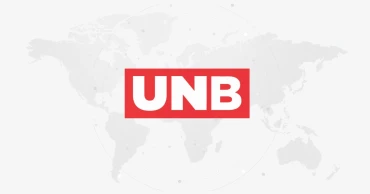
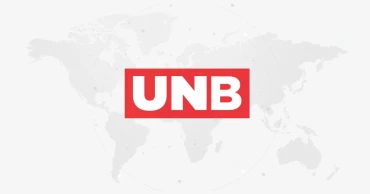
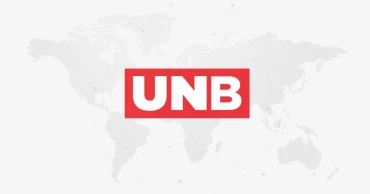
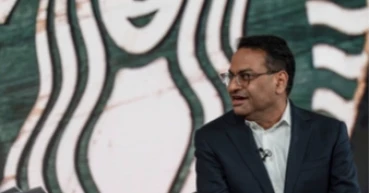
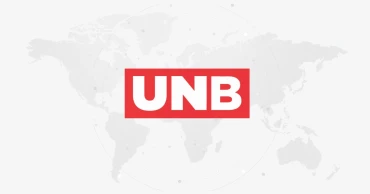
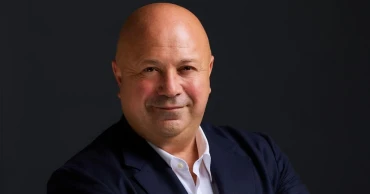
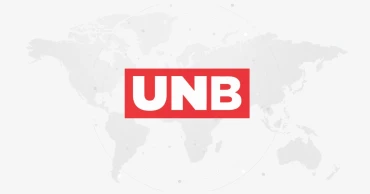
.jpg)








